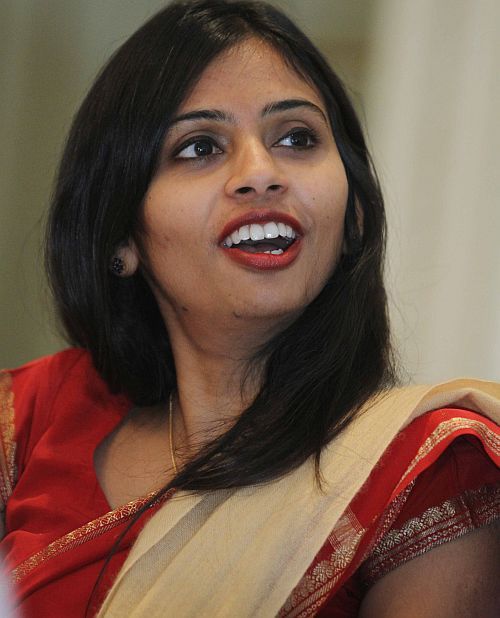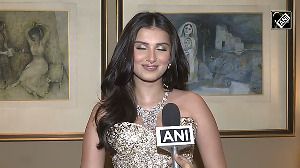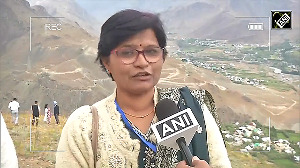 The Indian diplomat was indicted against the Vienna Convention on diplomatic immunity, her attorney Daniel N Arshack tells the court. George Joseph reports
The Indian diplomat was indicted against the Vienna Convention on diplomatic immunity, her attorney Daniel N Arshack tells the court. George Joseph reports
When Indian diplomat Devyani Khobragade was indicted by a grand jury on January 9, she had full diplomatic immunity and the proceedings against her should have been dismissed, Daniel N Arshack, her attorney told the court.
Arshack submitted his reply to the prosecution stand that she enjoyed no diplomatic immunity at the time of her arrest and she could be prosecuted. Arshack asserted that she enjoyed immunity all along.
He pointed out that the United States state department gave full diplomatic immunity to her on January 8. Yet she was indicted the next day, which was against the Vienna Convention on diplomatic immunity.
”It is acknowledged that the prosecution is not forever precluded from prosecuting the defendant. Our application is only that this proceeding must be dismissed. The instant indictment was returned and filed with the court prior to Dr Khobragade’s departure when she was still recognised as a diplomat and still imbued with diplomatic immunity,” the reply said.
"The prosecution could not then and cannot now proceed further on that invalid instrument. The prosecution is clearly legally able to seek a new indictment at this time or at some point in the future, now that Khobragade no longer possesses such diplomatic status and immunity, but it may not proceed further with this case,” it noted.
At the time of the indictment was issued, the United States did not have criminal jurisdiction over Khobragade, Arshack noted. “The indictment must be dismissed because the immunity bestowed upon her applied retroactively.”
“The prosecution goes to great lengths in its opposition to make inapposite distinctions between the immunity conferred upon consular officials versus diplomats under the respective Vienna Conventions as the ostensible basis to deny the requested relief. Such distinctions are a clear effort to obfuscate, are irrelevant and do not assist the court in resolving this matter.”
Arshack cited the following facts to support this: Khobragade was given full diplomatic status by the Department of State at 5:47 pm on January 8; the grand jury returned the instant indictment on January 9 after she was already cloaked with diplomatic immunity; she was present in the US then; and the diplomatic immunity upon her required that the entire “proceeding or action” be dismissed.
He also noted the timeline of events. Khobragade was appointed as a deputy consul general of India on October 26, 2013. “Contrary to the prosecution’s erroneous, self-serving and foundationless unilateral proclamation that her appointment terminated on January 8, 2014, she, in fact, continued in that capacity through January 9, 2014, at approximately 8:30 pm, when she was obligated by the US to depart the country.”
On August 26, 2013, she was appointed as a special advisor to the United Nations. That appointment continued, unabated, through December 31, 2013. He presented a document from the UN to prove this too.
She was arrested on December 12, 2013, handcuffed, strip searched, and then brought before Magistrate Netburn.
On December 18, 2013, she was transferred as counselor at the Permanent Mission of India to the UN, a position which carries with it full diplomatic immunity from prosecution.
On January 8, 2014, after significant delay, the state department recognised and fully credentialed Khobragade as a foreign diplomat notifying her that she was entitled to the privileges and immunities corresponding to her position.
Following this the defence prepared a motion asking to dismiss the case. But the prosecution sought and obtained the instant indictment from the grand jury.
Khobragade returned to India at approximately 8:30 pm on January 9. On January 14, the defence counsel filed another set of formal moving papers to dismiss the case.
“Here, the sequence of events to be examined for resolution of the motion is critical. The question is not whether the prosecution may bring a case against Khobragade now that she is a “former” diplomat: it can. But, it cannot do so based upon an indictment that was obtained while she was an active diplomat cloaked in immunity, as she was on January 9, 2014,” Arshack said.
“The immutable fact is that she was a diplomat entitled to immunity from prosecution who did not leave the United States until approximately 8:30 pm, which was several hours after the indictment was returned and filed with the court.”
Arrangements were being made to have her depart that evening once the court modified her bail conditions so that she would not be charged with any claim of bail jumping. Khobragade did not become a “former” diplomat until that evening at approximately 8:30 pm when her airplane departed American airspace.
Pursuant only to her position as deputy consul general, Khobragade was also afforded certain privileges and immunities under the Vienna Convention on consular relations “in respect to acts performed in the exercise of consular functions.”
In their response, the prosecution vehemently but simplistically argues that Khobragade’s charges are not covered by “official acts” immunity because several cases have held that “the hiring of a personal domestic worker is not an official act that confers immunity.”
It is clear that the prosecution’s reliance on these cases is inherently flawed for the basic reason that Khobragade has not been charged with a wage violation or for assault or other mistreatment of her domestic employee.
Khobragade stands accused of federal charges of submitting a fraudulent visa application; and presenting false statements to the US.
Under Count One, Khobragade is accused of assisting her domestic worker in the preparation an A-3 visa application to travel to the US, and causing the submission of said visa application to the US containing allegedly false statements.
Assisting in the preparation of an A-3 visa application so the domestic worker could travel to the US is undoubtedly an act that falls under the consular function of “helping and assisting nationals of the sending state.”
As to Count Two, the prosecution claims that Khobragade “caused to be submitted to the US department of state an employment contract that she knew to contain materially false and fraudulent statements, which contract was submitted in support of a visa application filed by Khobragade” on behalf of the domestic worker.
Here, the assistance in preparation and submission of an A-3 visa application and preparation of an accompanying employment contract, both of which were actually submitted to the US prosecution by the domestic worker, were reasonable efforts to effectuate Khobragade’s consular function of helping and assisting nationals of India.
Without the application and employment contract, the domestic worker could not obtain an A-3 visa to work as a domestic employee in the US. The prosecution’s disputed allegations that false statements were contained therein do not take this case of out the “official acts” immunity provided by Article 43 of the VCCR.
‘Thus, both charges against Khobragade, (1) visa fraud and (2) false statements, are covered by the “official acts” immunity of the VCCR, and precluded the arrest of Khobragade on December 12, 2013 and her subsequent indictment on January 9, 2014,’ the defence noted asking the court to dismiss the case.
The next court date is not yet set.
Image: Indian diplomat Devyani Khobragade











